
Running out of storage on your computer can slow down performance, limit productivity, and prevent you from saving important files.
Fortunately, freeing up space doesn’t have to be a daunting task. With the right strategies, you can reclaim valuable storage, keep your system running smoothly, and even extend your computer’s lifespan.
This guide explores actionable steps for how to free up space on your computer, from clearing unnecessary files to optimizing storage.
Why Freeing Up Space is Important
When your computer’s storage is nearly full, it can lead to several issues, including:
- Slow Performance: Full drives slow down data access and processing speeds.
- System Crashes: Insufficient space can cause applications and the operating system to freeze or crash.
- Limited Functionality: You might be unable to install updates or save new files.
Keeping your storage optimized ensures better performance and longevity for your device.

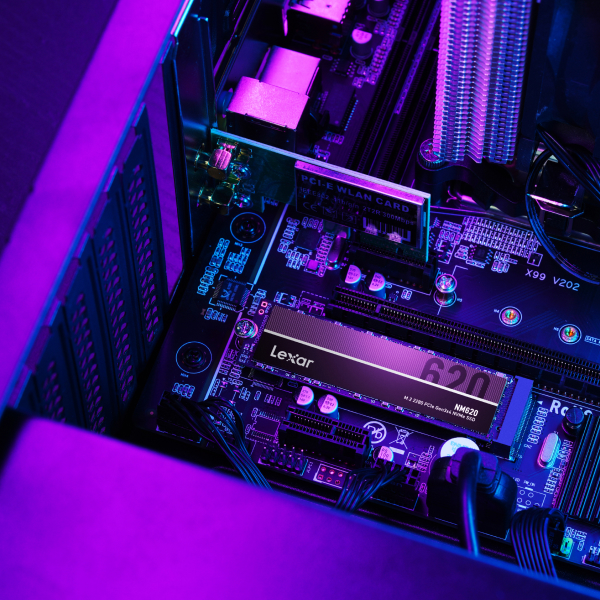
Quick Tips for Freeing Up Space on Your Computer
These simple methods provide a quick way to regain storage without requiring advanced tools or expertise:
1. Empty the Recycle Bin
Files in your Recycle Bin still occupy disk space. Regularly emptying it can free up significant storage.
2. Uninstall Unused Applications
Identify and remove software you no longer use. On Windows, go to Control Panel > Programs > Uninstall a Program, and on macOS, drag unused apps to the Trash.
3. Delete Temporary Files
Temporary files build up over time and take up space unnecessarily. Use tools like Disk Cleanup (Windows) or Finder’s Go menu (macOS) to locate and delete them.
4. Clear Browser Cache
Your browser stores cache files that accumulate and consume space. Regularly clearing your cache can help free up storage while improving browser performance.
Advanced Strategies to Free Up Space
For more significant results, try these advanced techniques:
1. Use Built-In Storage Management Tools
Windows
- Open Settings > System > Storage.
- Enable Storage Sense to automatically delete temporary files and recycle bin contents.
- Click Temporary Files to manually select and remove unnecessary files.
macOS
- Click the Apple menu and select About This Mac > Storage > Manage.
- Use recommendations such as Optimize Storage and Empty Trash Automatically to reclaim space.
2. Transfer Files to External Storage
Move large files like videos or backups to an external hard drive or SSD, such as Lexar Portable SSDs. This keeps your internal drive optimized while preserving access to important data.
3. Leverage Cloud Storage Solutions
Cloud services like Google Drive, OneDrive, or iCloud allow you to store files online, freeing up local storage. Many platforms offer free plans with limited capacity, and upgrading unlocks more space for a nominal fee.
4. Compress Large Files
Use file compression tools like WinRAR or 7-Zip to reduce the size of large files without losing data. Store compressed files on your computer or external storage to save space.
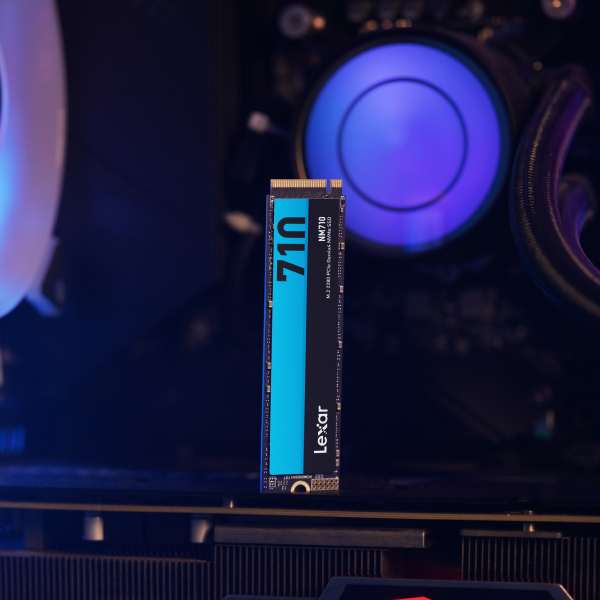
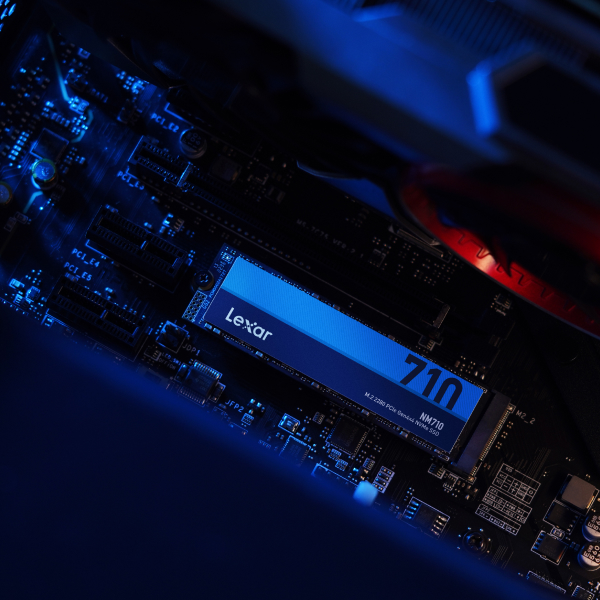
Identifying Space Hogs on Your Computer
Understanding which files and applications consume the most storage helps you target areas for cleanup.
1. Analyze Disk Usage
- Windows: Use tools like TreeSize Free or WinDirStat to visualize disk usage and identify space-hogging folders.
- macOS: Open About This Mac > Storage for a detailed breakdown of file types consuming space.
2. Sort Files by Size
Manually sorting files by size helps locate large, unnecessary files. Both Windows Explorer and Finder allow you to sort files within folders by size.
3. Locate Duplicate Files
Duplicate files often go unnoticed and take up space. Tools like CCleaner (Windows) or Gemini 2 (macOS) can help find and delete duplicates.
Automating Storage Maintenance
Automating your storage management can save time and ensure your computer remains clutter-free:
1. Schedule Regular Cleanups
Enable built-in features like Storage Sense (Windows) or automatic Trash emptying (macOS) to perform routine cleanups.
2. Use Third-Party Cleanup Tools
Applications like CleanMyPC (Windows) or CleanMyMac X (macOS) automate the process of removing junk files, clearing caches, and optimizing storage.
3. Monitor System Health
Regularly check your system’s storage and performance using tools like Task Manager (Windows) or Activity Monitor (macOS).
The Benefits of Reclaiming Space
Reclaiming space on your computer is beneficial across various scenarios:
- Students: Freeing up storage ensures you have enough space for coursework, videos, and research.
- Professionals: Optimizing storage allows for faster workflows, especially when working with large files like presentations or spreadsheets.
- Gamers: Clearing space accommodates new games and improves system responsiveness during gameplay.
When to Upgrade Your Storage
If you frequently run out of space, upgrading your storage may be the best solution:


1. Switch to an SSD
SSDs provide faster read/write speeds and are more durable than traditional HDDs. Consider Lexar Professional SSDs for high-performance and reliable storage solutions.
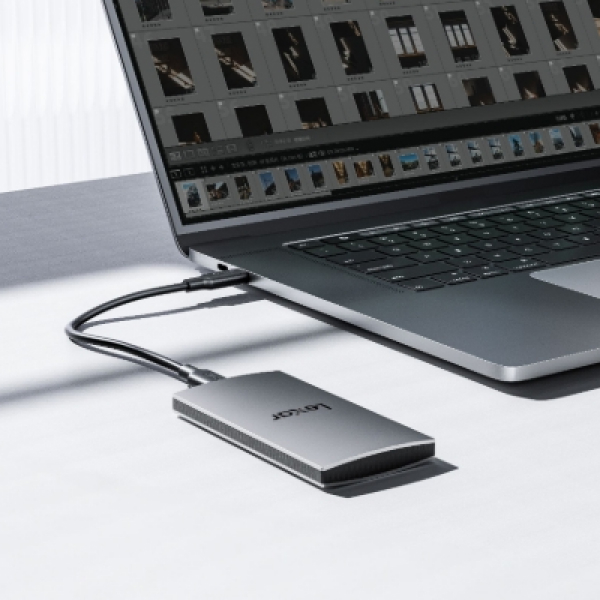

2. Use External Storage
External drives like Lexar Portable SSDs offer flexible storage expansion without modifying your internal setup.
3. Evaluate Cloud Storage
If upgrading hardware isn’t an option, consider investing in a premium cloud storage plan for large or frequently accessed files.
Common Storage Mistakes
While freeing up space, be cautious to avoid:
- Deleting System Files: Removing critical system files can cause stability issues. Stick to user files and temporary data.
- Neglecting Backups: Always back up important data before performing large-scale deletions.
- Overusing Cleanup Tools: Using too many optimization tools simultaneously can create conflicts and lead to unintended deletions.
The Importance of Backing Up Before Freeing Space
Before performing any major cleanup, it’s essential to back up important data to ensure you don’t accidentally delete files you might need later. Here’s how to create a reliable backup plan:

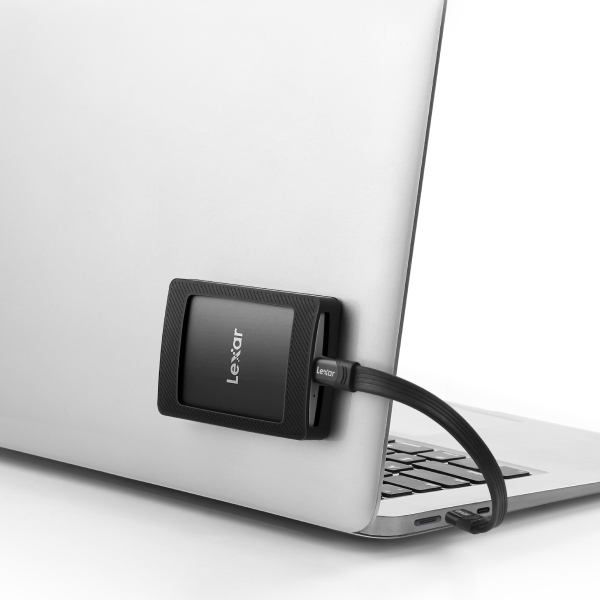
1. Use External Drives
Copy important files to an external hard drive or SSD, like the Lexar SL500 Portable SSD. This ensures you have a physical copy of your data, even if something goes wrong during the cleanup process.
2. Utilize Cloud Storage
Cloud solutions like Google Drive or Dropbox automatically sync files, making them accessible from anywhere and protecting them from local data loss.
3. Create System Restore Points
On Windows, create a restore point before making significant changes. This allows you to roll back your system if anything critical is accidentally removed.
How to Free Up Space on Gaming PCs
Gaming PCs often have limited storage due to large game files, mods, and updates. Here’s how to optimize storage while preserving your gaming experience:
1. Uninstall Unplayed Games
Review your library and uninstall games you no longer play. Use platforms like Steam or Epic Games Launcher to manage your installed titles.
2. Use External Drives for Game Storage
Move games to an external SSD, such as the Lexar SL500 Portable SSD, for quick access and ample storage without compromising performance.
3. Clear Game Cache and Mods
Delete unused mods or temporary game files, which can accumulate over time. Most game launchers provide options to clear cache within their settings.
How to Identify Storage Issues with Built-In Tools
If your computer consistently runs out of space, built-in diagnostic tools can help identify the root cause:
1. Disk Usage Analyzer (Windows)
- Open Settings > System > Storage and view a detailed breakdown of what’s consuming space.
- Click on specific categories, like Documents or Apps, to review and delete unnecessary files.
2. Optimize Storage Feature (macOS)
- Navigate to Apple Menu > About This Mac > Storage > Manage.
- Use recommendations to free up space, such as Store in iCloud or Reduce Clutter.
3. SMART Monitoring
Monitor the health and efficiency of your storage drives using tools like CrystalDiskInfo or DriveDx, especially if your drive seems slower or shows errors.
Sustainable Practices for Long-Term Storage Management
Regular maintenance ensures your computer stays optimized for years to come. Adopt these sustainable storage practices:
1. Implement Regular Cleanups
Set a monthly schedule to review and delete unnecessary files, uninstall unused apps, and empty the Recycle Bin.
2. Archive Rarely Used Files
Move infrequently accessed files to external or cloud storage. Archiving these files keeps your internal drive clutter-free.
3. Keep Drivers and OS Updated
Updated drivers and operating systems optimize storage and prevent inefficiencies caused by outdated software.
Keep Your Computer Optimized with Regular Maintenance
Freeing up space on your computer is essential for maintaining performance and functionality. By following the tips and tricks outlined in this guide, you can reclaim valuable storage, speed up your system, and ensure it remains reliable over time.
Ready to enhance your storage capabilities? Explore Lexar’s storage solutions for reliable, high-performance drives that meet your needs.




